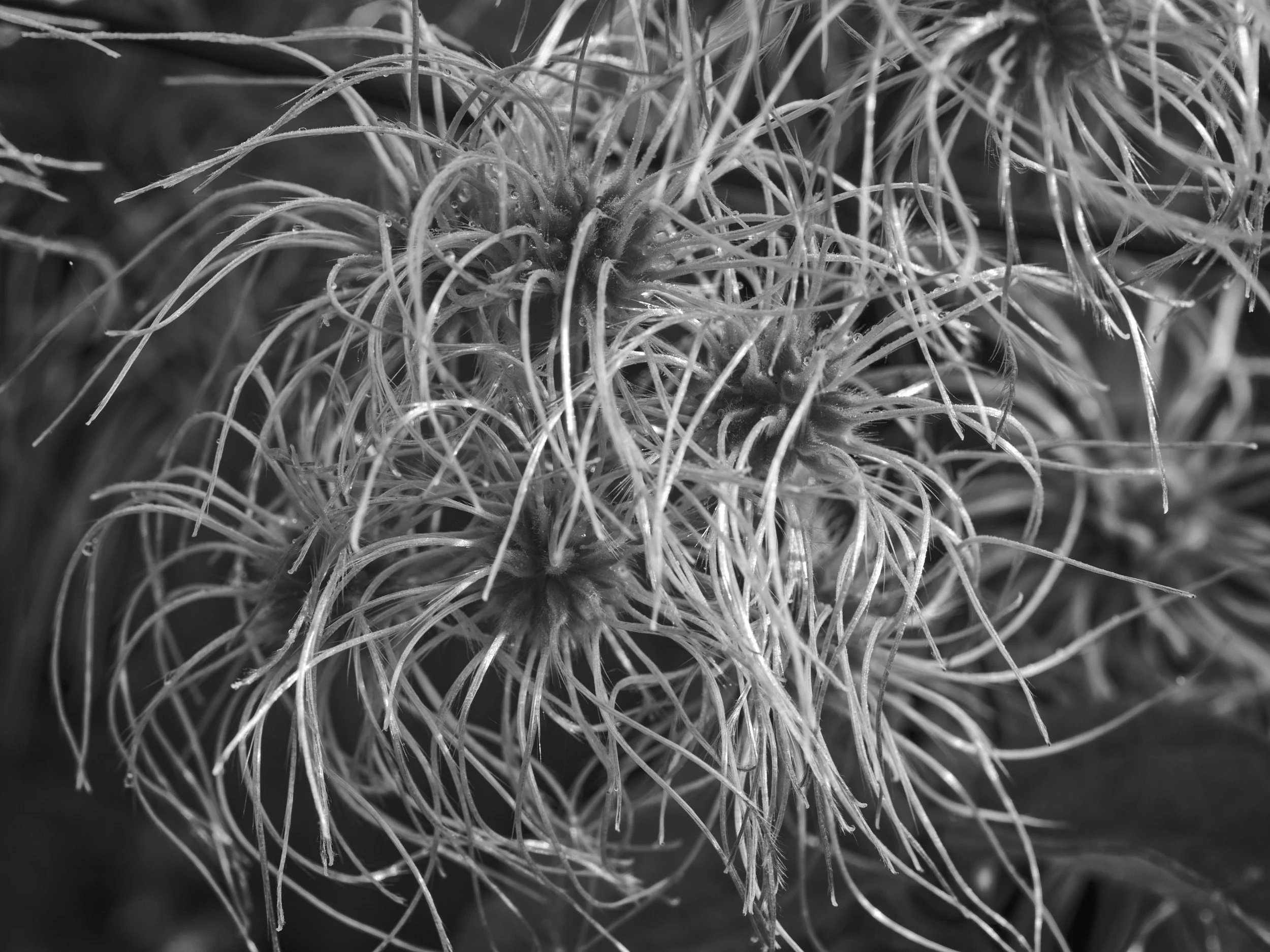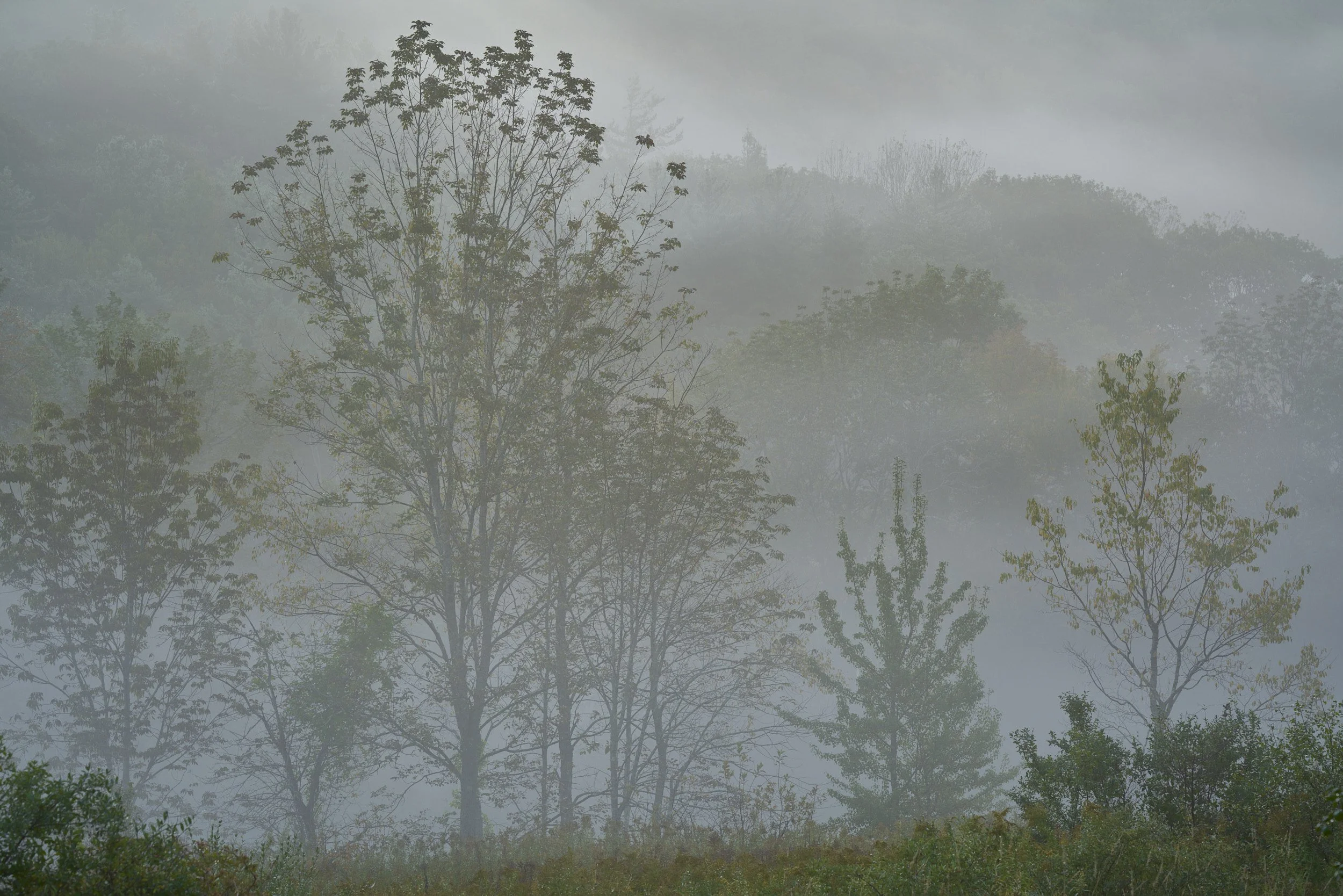Manittóo: Veneration for Place
Place has always been important to me conceptually and intrinsically. I confess to finding a certain solace even now in places similar to those in which I chased solitude as a youth, when almost anywhere outside the home solace increased. Then, as now, some of those places are not imbued with any ordinary beauty. Rather, meaning is found in an atmosphere of sorts, a feeling, a connection that latches onto me through all of my senses, crossing the outer limits of my corporeal being into my very humanity, it seems. At times, I could feel a sense a belonging, all alone in these odd little areas, that I could not achieve even with the best of friends or family as if I were connecting to a timeless and universal thing, a connectedness words cannot describe. That remains true to this day on some level and is among the reasons I return again and again to such places, with or without my camera. Then, as now, it seems as though that when in places of such special meaning, I was connecting to more than merely another person, another island, but to the universe itself. It is a meaning that I do not carry in with me into those places, but a meaning, a significance that comes from being open to what is offered from a local geography, a place, ordinary or extraordinary. I enter them as a receptacle. It is through this considered and open approach to these places that I try to forge what Barry Lopez called “a storied relationship to a place rather than a solely sensory awareness of it.” I do this with the hope that I can live, as Lopez suggests “in some sort of ethical unity with a place—as a fundamental human defense against loneliness.”
It was in those places, rather than in the institutions of education or religion, that I started to find, to believe—and to cherish—that there is something bigger than me, than humanity in this world. I did not find divinity per se in those little pockets of magnificence. What I did find was the mere fact—one that I have clung to like a castaway clings to wind-swept coastal outcrop in a storm—that there was more to this universe than me and mine, than modern humanity and our all-encompassing need to understand, to dominate, to own and that connecting to that thing, whatever you call it, is a higher calling than these. And that it is a gift, a treasure, not only to connect and converse with this energy, this battle with and celebration of entropy that rages and dances all around us, but to share what we have found with all who care to partake. I confess that did not find God, nor did God find me. But what I found for me was as profound: I found an intensely felt kernel of significance embedded deep in the precious, enveloping sphere of insignificance I encounter in the solitude that drapes over me when I am in such places. A kernel of significance that I—we all—share with nature. For me that kernel is reflected in the term manitou, what has been called the spiritual and fundamental lifeforce of Algonquin peoples belief system, a “lifeforce” found throughout all components and cohorts of nature and humanity.
Roger Williams, founder of Rhode Island and staunch advocate for religious freedom, was also a sharp critic of the treatment of indigenous peoples by colonial and European powers. Williams was infamous for, among many things, arguing that the King of England had no right to grant colonists title to indigenous land without compensation. After his banishment from the Massachusetts Bay Colony, Williams, now in the Providence Plantation, networked extensively with the Narragansett and Wampanoag peoples beyond acting as missionary or trader, becoming a friend and admirer. Seemingly keen on the importance of place to his indigenous neighbors, “Governor for Life” Williams, in “[a]ttempting to protect [indigenous peoples’] land from expropriation . . . became involved in endless boundary disputes with neighbors and speculators from surrounding colonies.” Williams also studied the local dialects of his indigenous neighbors, writing the “first published colonial study of a Native American language in English.”
Williams, in his 1643 treatise A Key Into the Language of America[i] praised the virtues of the indigenous peoples as he understood them, extolling several aspects of indigenous culture as better than those of European counterparts. Though in language that seems in today’s terms to be patronizing if not offensive, Williams included a poem praising the virtues of indigenous people at the end of each chapter.[ii] His definitions were, at times, as poetic as they were insightful. One word in particular, Mannitóo, per his spelling, manitou to most today, encapsulates for me some of what I feel when in those places that mean and have meant so much to me throughout my life. Williams, describing the term observed that “there is a generall Custome amongst them, at the apprehension of any Excellency in Men, Women, Birds, Beasts, Fish, &c. to cry out Manittóo, that is, it is a God, as thus if they see one man excell others in Wisdome, Valour, Strength, Activity &c. they cry out Manittóo.” Williams offered that indigenous people extolled “God” as imbuing all that surrounded them. “And therefore when they talke amongst themselves of the English ships, and great buildings, of the plowing of their Fields, and especially of Bookes and Letters, they will end thus: Manittôwock, They are Gods: Cummanittôo, You are a God, &c.” While it is not God, per se, I see and sense when in nature I do share the notion that something much more important, far more significant than me and humanity is at play when stood in nature. And, interchanging a divine being with an encompassing power larger, more significant and as inscrutable, I have no quibble with Williams offer that a “strong Conviction naturall in the soule of man, that God is filling all things, and places, and that all Excellencies dwell in God, and proceed from him, and that they only are blessed who have that Jehovah their portion.” Williams summarizes in verse, “Every little Grasse doth tell, The sons of Men, there God doth dwell.” This couplet is imbued with that same kernel of significance I find when in my local geography and the insignificance of the “I Me Mine,” mindset fades and falters.
James W. Mavor, Jr., and Byron E. Dix, in their incredible book on indigenous lithic ritual sites, Manitou:The Sacred Landscape of New England's Native Civilization, share their definition of the term manitou and the meaning it carries. “We perceive manitou as the spiritual quality possessed by every part or aspect of nature, animate or inanimate.” They argue that in nature, “[t]hings relate to each other by means of this quality . . . temporary or permanent, fixed or changing.” They conclude, and it is evident to me, that “[m]anitou includes aspects of the natural world that are sensed but not understood.” I believe that it is to things not understood but sensed, on some deep level, that puts me in touch with that deeply embedded kernel of significance that is both inside and outside of me, connected by gossamer tendrils of faith in the unshakable notion that in nature resides a higher, mystical quality and that I am as much a part of—not above, not apart from—as the wood thrush, the river birch or the stillness of a fog lilted, golden rodded meadow in the predawn chill of an autumn morning.
—Doug Butler
[i]The full title: A Key into The Language of America, Or An Help To The Language of The Natives In That Part of America Called New-England; Together With Briefe Observations of The Customes, Manners, And Worships, &C. of The Aforesaid Natives, In Peace and Warre, In Life and Death. On All Which Are Added, Spirituall Observations Generall and Particular, By the Authour, Of Chiefe and Speciall Use (Upon All Occasions) To All The English Inhabiting Those Parts; Yet Pleasant And Profitable To The View Of All Men.
[ii]The poem at the end of Chapter III Concerning Sleep and Lodging reads:
From their Sleeping: The Observation generall.
Sweet rest is not confind to soft Beds, for, not only God gives his beloved sleep on hard lodgings: but also Nature and Custome gives sound sleep to these Americans on the Earth, on a Boord or Mat. Yet how is Europe bound to God for better lodging, &c.
More particular:
1. God gives them sleep on Ground, on Straw,
on Sedgie Mats or Boord:
When English Softest Beds of Downe,
sometimes no sleep affoord.
2. I have knowne them leave their House and Mat,
to lodge a Friend or stranger,
When Jewes and Christians oft have sent
Christ Jesus to the Manger.
3. ’Fore day they invocate their Gods,
Though Many False and New:
O how should that God worshipt be,
who is but One and True?




